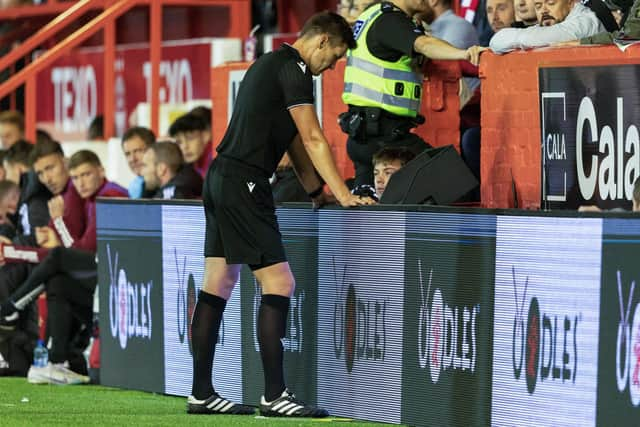Referees tipped to be replaced by robots - 'I am not saying this is positive, I’m just saying it is likely to happen'
Artificial intelligence is already prominent in officiating, with the use of VAR and goalline technology, but it is expected to heavily increase in the future. With more high-quality data available, it could be possible for matches to be officiated by an AI-powered machine, taking away the need for an on-field human referee.
“Computer vision will be more and more effective in the next few years and the number of cameras on the pitch will only increase,” Aldo Comi, chief executive of leading global football analytics provider Soccerment, said. “The amount of data that is tagged and the quality of the models that are trained with that data will increase exponentially and thanks to that you will have AI models that can make refereeing decisions on the back of what they see on the pitch. So we might get to the point where we don’t need a referee at all.
Advertisement
Hide AdAdvertisement
Hide Ad“Before that, you will maybe have a referee but not linesmen, maybe they will be the first to disappear from the game. And you will have the referee connected to the virtual assistant, guiding them to make better decisions. Ultimately in a matter of 20 or 30 years probably the referee will be just an AI. I am not saying this is positive, I’m just saying it is likely to happen.”


The increase of AI and machine learning in football will not be restricted to officiating and it is already present in the game. The use of data analytics have helped the likes of Brighton and Brentford disrupt the established Premier League hierarchy as they have unearthed high-quality signings which they have sold on for significant profits. But the improvement in the integration of data could see managers using a virtual coach to help them with team selection and tactics.
“AI can become a source of new ways of thinking about the game in the next few years,” Comi added. “If you give AI enough high-quality data, you will have the possibility to have a virtual assistant, which will have a better understanding of what is going on the pitch. By having the data analysed by AI you can train models to better understand what will happen in the future, for example understanding the probabilities of what is happening in the next five or 10 minutes.
“By having this predictive analytics, the AI can give you a so-called prescriptive analytics. It says, ‘Things are expected to go this way, in order to improve your chances I have 10 ideas’. That could be swapping two players or changing the structure of the team. The things that the AI suggests will be filtered by the assistant coach and then pass on the information to the manager and it will be up to him to accept. There will be AI, but not replacing professionals, but it is more of a high-quality support. The clubs that can get this sport will outperform the ones that refrain from having it.”
Comi, whose company serve several Serie A and Serie B clubs, says that people will need to learn to trust AI but the evidence of it working is already out there. He added: “It will take time to trust, but in the same way with data analytics, there are enough positive cases to say that you can out-perform the others, we have seen it with Brentford and Brighton. The advantage that AI can give you is X times more important than data analytics.”
Soccerment has launched a new platform, xvalue.ai, which has introduced never seen before metrics such as Gegenpressing Intensity (GPI), Expected Offensive Value Added (xOVA), Gegenpressing Efficiency (GPE) and BuildUp Disruption Percentage (BDP%), providing users with more data insights than ever before. For more details visit www.soccerment.com